Content
All seeds have a protective layer on their surface, which allows them to be stored for a long time and not be subject to rotting or external influences. But this layer prevents them from germinating after planting. In order for the seeds to germinate better and faster, they are treated using the bubbling method.
Benefits of sparging
All gardeners want to get early and fruitful seedlings of vegetables, so no number of ways can be invented to improve germination, and everyone uses their own, most suitable process.
This is, for example, pre-soaking seeds, which is carried out by keeping them in a humid environment for a long time. This method can result in both benefit and harm. Not all seeds germinate. Many of them simply rot from the inside and do not sprout at all.
The best method is considered to be bubbling seeds, although not everyone still uses it. It increases early germination. As a rule, sprouts appear 8 days earlier compared to sowing untreated material. Bubbling promotes the transfer of vital force from seed to sprout.
Bubbling is the exposure of seed material to oxygen for a certain time period specific to each type of seed.
Seed bubbling technology
In order to carry out bubbling at home, you need to prepare the tools and containers necessary for the process:
- A jar, preferably up to a liter in volume;
- Compressor from an aquarium.
First you need to make a bubbler from the above material. There is nothing complicated about this. You just need to fill the jar more than half with water and lower the compressor into it. The volume of seeds to the volume of liquid should be approximately 1:4.
Due to the fact that it is impossible to obtain oxygen at home, and its use in its pure form is dangerous, a compressor is the best way out, because the device saturates the water in the aquarium with oxygen.
The bubbling process goes like this:
Pour the seeds of the desired crop, for example, cucumbers, into the prepared water and turn on the compressor. Thus, they are processed within a certain time. For each crop, a certain processing time is given so that the seeds have time to prepare for planting. You can track the required time in the approximate time table:
Culture | Time of processing |
|---|---|
Celery | No more than 24 hours |
Peas | On average 10 hours |
Pepper | Day |
Parsley | 12 – 24 hours |
Radish | From 8 to 12 hours |
Beet | No more than 24 hours |
Salad | No more than 15 hours |
Tomato | No more than 20 hours |
Dill | 15 – 20 hours |
Spinach | Day |
Carrot | Two days |
Watermelon | Two days |
cucumbers | No more than 20 hours |
Onion | Day |
In order to better understand the sparging process, you can watch a video that clearly shows all the steps required to carry out the procedure.
If the house has a funnel, then you can make a slightly different bubbler design. To do this, you need to attach the tip of the compressor to the neck of the funnel, and lower the funnel itself completely into the jar.Place the seeds in a fabric bag to allow air to pass through and place inside the funnel. With the help of such a simple device, you can increase the quality of bubbling, since air will be supplied directly to the seeds.
The final stage of the process and sowing
Once the seeds are prepared and ready to sow, they need to be dried so that they can separate from each other. If it is not possible to introduce the material into the soil immediately after the bubbling process, then you need to lay them out in a thin layer on newspaper or fabric and dry them to a loose state in a well-ventilated area. Under no circumstances should you do this in the sun.
Separately, it is worth mentioning about the storage of bubbled carrot seeds. They are placed in a plastic bag without waiting for them to dry, and stored like this until sowing, without allowing them to freeze or dry out. The temperature should be standard for a refrigerator from 1 to 4 degrees Celsius. Foreign scientists have found that seeds after this procedure increase their germination even more.
Immediately before sowing, a paste is made. It is needed in order to further increase the germination of seeds and protect them from the external environment.
The paste is prepared as follows:
- Add 30 grams of starch to 100 ml of cold water and stir well.
- Next, approximately 900 ml of hot boiling water is poured into the jar and starch and cold water are poured in a thin stream.
- Mix everything thoroughly.
- Place the jar in a pan of water and put on fire.
- Heat to 92 degrees.
- Cool to room temperature, avoiding the formation of a film.
- After the paste has cooled, the film formed on the surface is removed from it and the seed material is poured into it, which is carefully kneaded to prevent damage to the emerging roots.
The process of mixing the paste with seeds can be seen in the following video:
Sowing is done in moistened grooves no more than 2.5 cm deep. The paste with seed material is poured in a thin stream from a cup or syringe. Immediately after the seeds are distributed along the furrow, they should be covered with loose soil. Until the seedlings appear, the bed must be constantly moistened. After sowing the seeds of cucumbers and carrots, the top of the bed can be covered with film.
Conclusion
Carrying out bubbling for seeds at home is not at all difficult. You just need to purchase a compressor for the aquarium. The germination result after such a procedure increases noticeably, which cannot but please avid gardeners.
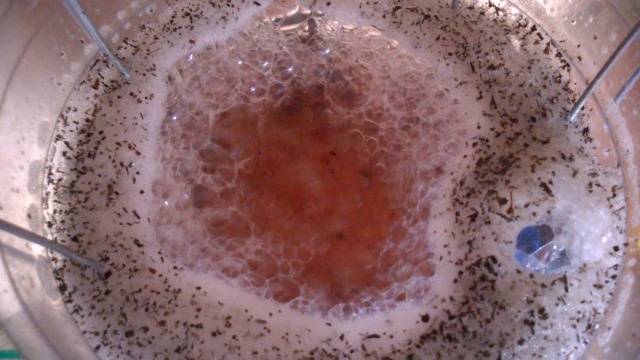
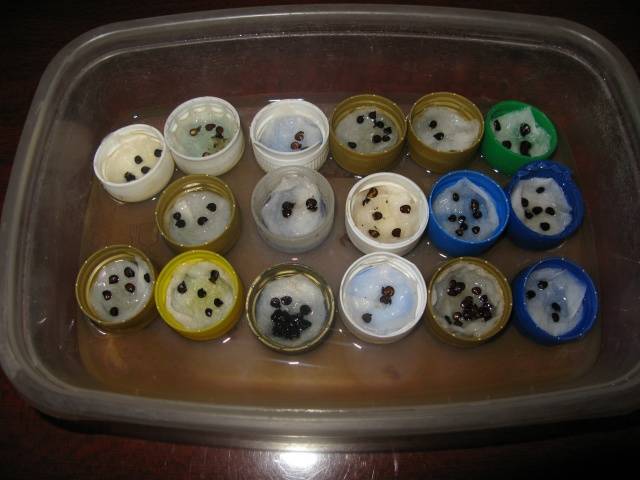
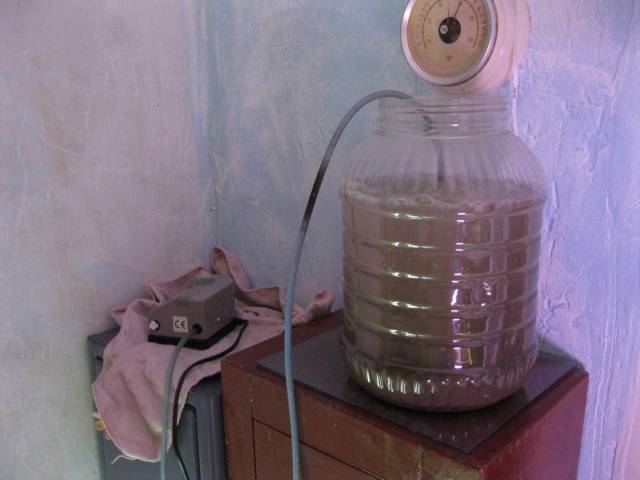
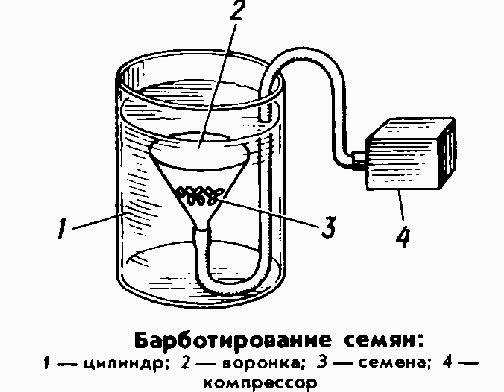
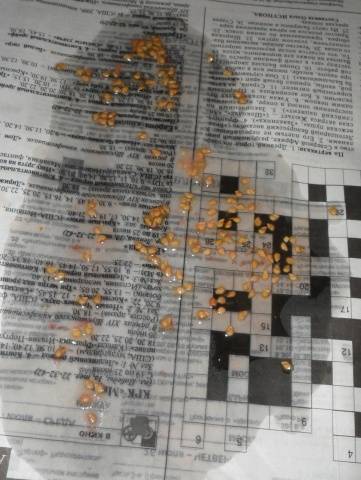
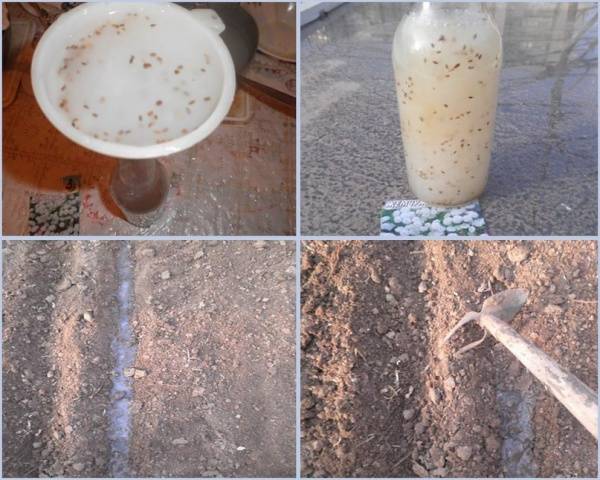
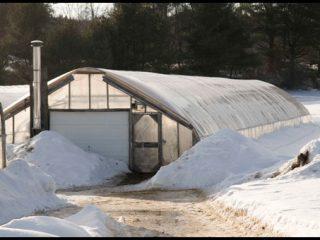
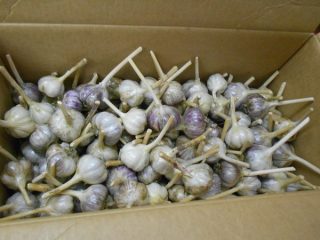
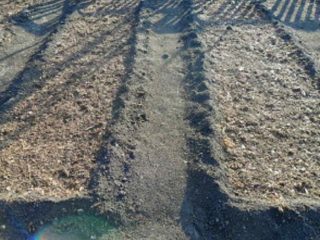

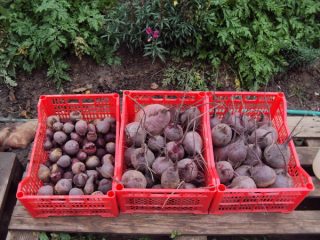


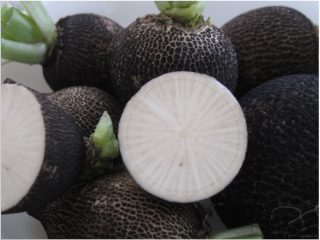
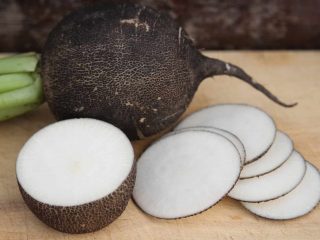
Add to this bubbler a way to maintain a set temperature. Maybe you can install an aquarium thermostat (which is 100-watt, and you set it to, for example, 24 degrees and it always holds it and is inexpensive and comes in different capacities).